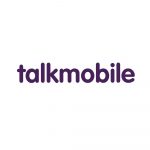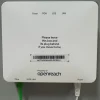UPDATE2 Big UK ISPs Say Home Routers Safe from SHELLSHOCK Bug
Last week’s news was flooded with coverage of a new vulnerability in the command-line Bash interface (shell) for many Linux / Unix based systems, called SHELLSHOCK (CVE-2014-6271). Bash forms a part of everything from web servers to Smartphones (iPhone, Android etc.) and even quite a few broadband routers, but don’t worry because most of you will be safe.. probably, hopefully.
A lot of things have been said about the Shellshock bug but the truth is that casual home users probably don’t have too much to worry about, so long as you use some common sense with regards to security and keep everything updated. Even many exposed systems don’t allow external execution of Bash, which makes it harder for the bug to do damage unless the attacker can first gain access to an affected system (possibly via a Trojan / Virus infection etc.).
Advertisement
Mind you that’s not to say that having Bash exposed in any way, even locally (i.e. admin level access may be required to exploit it), is a good thing. Indeed if a semi-vulnerable system did get infected with a virus that knew how to exploit this bug then it would be easy enough for that malware to run a simple Bash command and wipe the system or do any number of other things, such as turning it into a zombie for hackers or botnet spammers to control.
So what about all those home broadband routers that the big ISPs often bundle for free? The good news is that most of them and many other embedded devices actually make use of the Busybox software instead of the Bash, which is NOT vulnerable to the bug. But to help put your minds at rest we asked around to see what the four largest ISPs had to say.
Big ISP Comments on Shellshock
BT – “At this time we do not believe that BT Home Hubs, BT Vision and YouView boxes are vulnerable. We are however conducting a thorough review of our estate, and continue to monitor the situation.”
Virgin Media – “We can confirm that all versions of the Super Hub supplied by Virgin Media have been tested and are not vulnerable to the Shellshock/Bash bug.”
Sky Broadband – “I want to reassure you that there are no issues with our Sky routers.”
TalkTalk – We’re still awaiting an official comment, although from what we can tell most of their routers use BusyBox (safe).
We are of course keeping an eye on this but for now it looks like those with bundled routers from the biggest ISPs are safe. Obviously if you are concerned about your router, especially if it’s not from an ISP listed above, then do a bit of Googling to see whether the model uses Bash or BusyBox (it’ll probably be the latter). If it’s the former then you might need to query with the manufacturer directly, just to be absolutely safe, but we wouldn’t panic.
UPDATE 28th September 2014
Advertisement
A TalkTalk spokesperson has given ISPreview.co.uk the following statement: “We would like to reassure customers that none of our routers are affected by the Shellshock bug. Although our routers are not affected customers should ensure they are protecting themselves if they are running web servers. Customers can get general advice on protecting themselves by visiting help.talktalk.co.uk. Our customers using other routers should seek advice from their manufacturers.”
UPDATE 1st October 2014
For what it’s worth Sky has now issued a slightly fuller statement, although it still says the same thing.
A Sky Broadband Spokesperson said:
“At Sky we ensure all of our products are fully tested according to industry standards before they’re made available to our customers.
In response to recent media speculation surrounding the ‘Shellshock’ bug we’d like to reassure our customers that as we do not run Bash software on our Sky Hub or Sky Wireless routers, these products are unaffected by this type of vulnerability.
Former 02 and BE customers who have recently transferred their broadband to Sky, are also unaffected.”
Mark is a professional technology writer, IT consultant and computer engineer from Dorset (England), he also founded ISPreview in 1999 and enjoys analysing the latest telecoms and broadband developments. Find me on X (Twitter), Mastodon, Facebook, BlueSky, Threads.net and Linkedin.
« Horton Village Angry at Superslow BDUK and BT Broadband Upgrade


















































Comments are closed